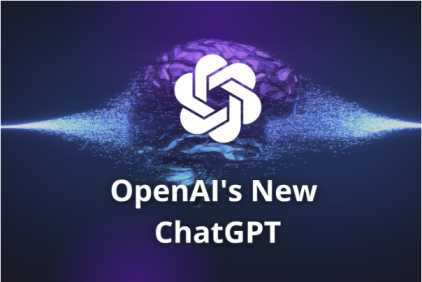
In today’s digital age, creating compelling content for websites and blogs is crucial for businesses to effectively promote their products and services. However, the traditional approach of relying on external teams or in-house specialists for content creation can be costly and time-consuming. Enter AI tools, a game-changer in the realm of content creation. By leveraging AI-powered platforms like ChatGPT for generating text, Leonardo for crafting images and art, and the upcoming Sora for video production, businesses can now streamline their content creation processes without the need for specialised expertise. This blog explores how AI tools are reshaping the landscape of content creation, making it more accessible and efficient for businesses of all sizes.
The Rise of AI in Content Creation
The rise of AI in content creation has revolutionised how businesses approach generating text, images, and videos for their websites and blogs. AI tools, such as ChatGPT, Leonardo, and upcoming platforms like Sora, are reshaping the content creation landscape by automating tasks that were once time-consuming and labour-intensive. These AI-driven tools can produce high-quality articles, blog posts, images, and videos by analysing vast datasets and generating human-like content.
AI’s impact extends beyond textual content to multimedia creation, where it can enhance images and videos, apply artistic filters, and even generate entirely new media. This transformation has significant implications for industries like marketing and entertainment, where AI-driven tools can improve content quality, reduce costs, and drive engagement and business outcomes.
Moreover, AI contributes to efficiency gains by automating repetitive processes like generating outlines, suggesting keywords, and creating initial drafts rapidly. This automation not only accelerates the content creation process but also allows human creators to focus on refining ideas, adding creativity, and ensuring the final output resonates with the intended audience.
The integration of AI tools in content creation empowers businesses to scale their content production, create personalised content, and enhance user engagement. By leveraging AI’s capabilities seamlessly within content management systems, creators can streamline their workflows, save time, and deliver content more efficiently to their audiences.
ChatGPT: Revolutionising Text Generation

ChatGPT is revolutionising text generation by offering highly coherent and human-like text, making it ideal for various applications like chatbot development, content creation, and language translation. It can be fine-tuned for specific tasks and industries, enhancing its accuracy and suitability across a wide range of uses. Despite its strengths, ChatGPT faces challenges such as generating inappropriate or offensive text and requiring significant computational power to run efficiently. However, with proper fine-tuning and usage, these limitations can be mitigated, allowing ChatGPT to shape the future of text generation by providing natural language understanding and high-quality text output.
ChatGPT is changing the game for text generation by revolutionising natural language processing through its ability to generate coherent and human-like responses. This AI-powered tool, developed by OpenAI, is pre-trained on vast amounts of text data, enabling it to predict the next word or sequence accurately. ChatGPT’s success lies in its extensive pre-training, fine-tuning capabilities, and high-quality text generation, making it a valuable asset for various natural language processing tasks. Despite its strengths, ChatGPT faces challenges such as understanding context, exercising common sense, and avoiding bias. However, with ongoing advancements and future developments, ChatGPT has the potential to reshape how we interact with technology and machines through natural and human-like communication.
Leonardo: Redefining Visual Content Creation
Leonardo AI is redefining visual content creation by offering a revolutionary platform that empowers users to generate high-quality visual assets with unprecedented speed, quality, and style consistency. This AI-powered tool is designed to streamline the design and production processes across various creative industries by providing capabilities such as artistic style generation, image synthesis, illustration and design assistance, and 3D texture generation. By leveraging Leonardo AI, users can cultivate originality, simplify mastery, and turbocharge innovation in diverse fields like character design, game assets, concept art, graphic design, fashion, marketing, advertising, product photography, architecture, and interior design. The platform’s AI Canvas feature allows users to have complete control over their designs, enabling them to adjust dimensions, refine details, and fine-tune their creations seamlessly. Leonardo AI’s ability to blend robust editing functions with an immersive creative process enhances user creativity and control, making it a valuable tool for professionals and beginners alike. Overall, Leonardo AI is not just a tool for creating visual content; it is a catalyst for transforming how visual assets are conceptualised, designed, and brought to life across various industries and creative endeavours.
Sora: The Future of Video Production
Sora, developed by OpenAI, represents the future of video production by introducing groundbreaking capabilities that enable the generation of highly realistic videos from simple text prompts. This AI tool has the potential to revolutionise the video making industry by streamlining creative workflows, enhancing accessibility, and raising ethical considerations. Sora’s ability to produce high-quality videos rapidly is expected to lower barriers to entry for aspiring filmmakers, allowing them to bring their cinematic visions to life with minimal resources. By leveraging Sora, directors can experiment with various styles, iterate on drafts quickly, and actualise their creative ideas in a fraction of the time traditionally required. This democratisation of video production could empower indie artists and major studios alike, fostering a more inclusive and diverse representation of stories and perspectives in media. However, the emergence of AI tools like Sora also raises ethical concerns regarding the potential misuse of AI-generated content to deceive viewers and the impact on jobs within the film industry. As the industry navigates the integration of AI technologies responsibly, the choices made today will shape the future of video production, influencing careers, truth-seeking, and the evolution of cinematic storytelling.

Breaking Barriers: Accessibility and Affordability
The articles discuss the importance of breaking barriers related to accessibility and affordability in healthcare to ensure individuals can access essential medical services without financial constraints. They highlight the multifaceted nature of access, encompassing dimensions such as affordability, availability, accessibility, accommodation, and acceptability. Addressing these barriers involves ensuring that healthcare services are affordable, physically accessible, and culturally acceptable to diverse populations. The articles emphasise the need for awareness, affordability, acceptability, accessibility, availability, accommodation, and accountability in healthcare organisations to enhance access and equity. By promoting preventive care, reducing out-of-pocket costs, and improving price transparency, the healthcare system can work towards providing quality and accessible care for all individuals, ultimately improving health outcomes and lowering overall healthcare costs.
Empowering Businesses: AI Tools for All
The articles discuss various AI tools that empower businesses by enhancing efficiency, productivity, and decision-making processes. These tools leverage artificial intelligence to streamline operations, automate tasks, and improve customer interactions across different business functions. From AI-powered writing assistants like Jasper.ai to tools for customer service, data integration, predictive modelling, and workflow automation, businesses can harness these AI solutions to optimise their processes and drive growth. By incorporating AI tools into their workflows, businesses can gain valuable insights, automate repetitive tasks, enhance customer service, and make data-driven decisions, ultimately improving their competitiveness and success in today’s dynamic business landscape.
AI-driven content creation presents a mix of challenges and opportunities for content creators. Challenges include concerns about maintaining authenticity and human connection in a landscape dominated by automation, algorithmic uncertainty, data privacy issues, and algorithm bias. On the other hand, opportunities include unprecedented efficiency, precision, scalability, and the ability to create personalised and targeted content that resonates with specific audiences. By effectively leveraging AI tools, content creators can streamline processes, enhance productivity, and deliver high-quality content at scale, ultimately driving innovation and success in the digital realm.
How can AI be used to enhance creativity in content creation?
AI can be used to enhance creativity in content creation by automating repetitive tasks, providing data-driven insights, and streamlining processes. AI-powered tools like automated writing assistants, graphic design platforms, and video editing software can help content creators generate high-quality content more efficiently. These tools analyse data, identify patterns, and offer suggestions that inspire creativity and innovation. By leveraging AI algorithms for tasks like generating ideas, optimising content for SEO, and personalising content for specific audiences, content creators can focus more on the creative aspects of their work, experiment with new formats and styles, and deliver engaging and tailored content at scale. Ultimately, AI complements human creativity by offering efficiency, data analysis, and automation, allowing content creators to produce more impactful and relevant content.

The Future of Content Creation: A Paradigm Shift
The future of content creation is undergoing a paradigm shift with the integration of AI technologies, marking a transformative evolution in how content is produced, distributed, and consumed across various mediums. AI-powered content creation leverages advanced algorithms, machine learning capabilities, and natural language processing to generate, edit, and curate content with increasing sophistication and minimal human intervention. This shift not only accelerates content production but also enhances its quality, relevance, and scalability. AI tools are revolutionising content creation by automating tasks like writing, graphic design, video production, and music creation, streamlining processes, and democratising the creation of high-quality content. The integration of AI in content creation reflects a growing trend across various sectors, from journalism to marketing and entertainment, offering personalised content, enhancing visual and auditory experiences, and providing data-driven insights to inform content strategies. The future of content creation is undeniably intertwined with AI, empowering content creators to deliver more personalised, efficient, and data-informed content while also raising ethical considerations regarding responsible and ethical content creation practices.
Promocious: Revolutionising Content Creation with AI-Powered Solutions
Promocious, a digital promotion division of GameCloud Technologies Pvt Ltd, is at the forefront of utilising AI and creative strategies to enhance digital promotions for gaming and non-gaming brands. Their innovative approach combines expertise in the AI with cutting-edge promotion tactics to elevate the digital presence of diverse entities. Aligning with the blog post title “Can’t afford external teams or in-house staff to build your blogs, images, and videos for promoting your products and services? Use AI tools!”, Promocious embodies this ethos by offering bespoke digital marketing strategies that cater to businesses of all sizes and budgets. Through their ‘Deliciously Digital Promotions’ strategy, Promocious ensures maximum impact by tailoring services to meet the unique needs of each client, guaranteeing effective promotion and awareness through multifaceted online channels. By embracing AI tools and creative content solutions, Promocious empowers businesses to create vibrant, engaging online narratives that resonate with their target audience, driving meaningful engagement and fostering brand loyalty.
Conclusion
In conclusion, the integration of AI tools like ChatGPT, Leonardo, and Sora marks a significant shift in how businesses approach content creation for their websites and blogs. By harnessing the power of artificial intelligence, businesses can now create high-quality text, images, and videos without the need for extensive resources or specialised skills. This democratisation of content creation not only enhances efficiency and affordability but also opens up new possibilities for businesses to engage with their audiences in innovative ways. As AI continues to advance, the future of content creation looks promising, offering endless opportunities for businesses to elevate their online presence and drive success in the digital landscape.
